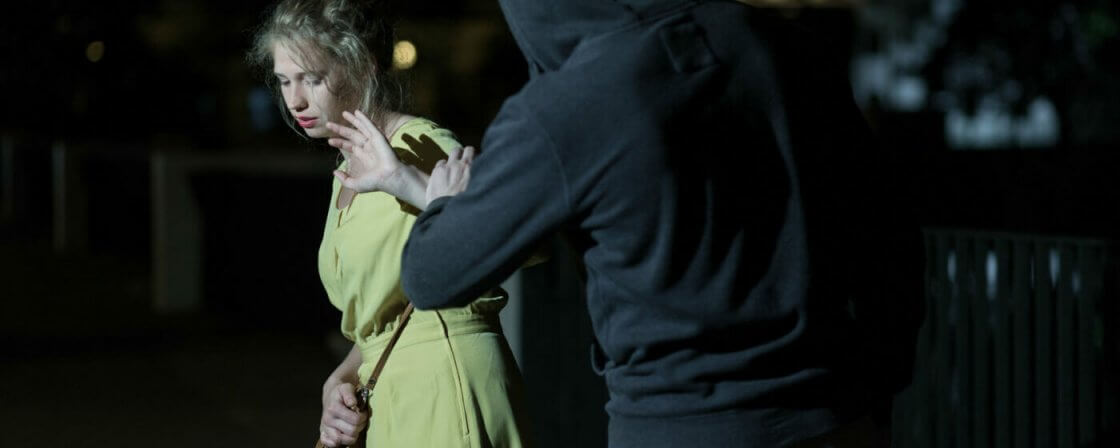To report or not to report?
The first thing victims deal with immediately after a crime is whether to report it to the police. A large proportion of them do not report anything, and for some crimes this is even typical (for example, for rape this is around 10-22% of reported cases). The reasons vary from shame and reluctance to deal with private and intimate matters with strangers, fear of secondary victimisation (both typical of rape and domestic violence), fear of the victim of the reaction of those around him/her, fear of the inability of the police to solve the case, the victim’s share of the blame for the crime, to the general belief that the effort and difficulty of the criminal procedure is not worth it.
It has to be said that the situation of victims in our country has improved significantly in recent years. This is due, firstly, to the adoption of the Victims of Crime Act and, secondly, to the systematic training of the police not only in their approach to victims of rape and domestic violence, but also to victims in general.
Our recommendation is therefore to report the crime. Although we understand that the whole process is unpleasant, in the end it can also strengthen the psyche of the victims that they did not let the crime go. Moreover, by catching the perpetrator, they can prevent the same situation from happening again to other people.
Are you solving a similar problem?
Criminal reports can be made orally or in writing. The place of filing a criminal complaint may be the police or the public prosecutor’s office. For serious and specific crimes such as organised crime, violence against children or rape, it is advisable to use specialised criminal services and investigation units with properly trained police officers. A case reported here can then be dealt with competently from the outset, or with the necessary discretion.
You do not need to be legally literate to make a criminal report, nor do you need to know the difference between theft and robbery, or sexual coercion and rape. You don’t even have to deal with whether it is already a crime or just a misdemeanor (for example, stealing a wallet with a small amount of cash or stealing an older bicycle). It is up to the police to assess and evaluate everything.
Tip for article
Tip: We have discussed how to file a criminal complaint so that it is actually dealt with and what it should contain in our article.
Remember that it is not automatic for the police to tell you how they have dealt with a criminal complaint. You have to ask for this directly in the criminal complaint and you will be notified within one month. If you do so, the police must notify you within 30 days.
Who is considered a victim of a crime?
According to the Victims of Crime Act, a victim is a natural person who has been or should have been harmed by a crime, or who has suffered material or non-material damage, or at whose expense the offender has been enriched by the crime. The principle that any person who feels that he or she is a victim of the offence is to be regarded as a victim, unless the contrary appears to be the case, is important.
The law also defines a specific category of particularly vulnerable victims, namely
- children (victims under the age of 18)
- senior citizens
- persons with physical, mental or psychological disabilities or sensory impairments
- victims of specific crimes: trafficking in human beings, rape, abuse of a ward, abuse of a person living in a shared home, or the crime of terrorist attack,
- victims of other statutorily enumerated crimes (e.g. those involving coercion, violence or threat of violence) where there is an increased risk of causing secondary harm, in particular with regard to, for example, religion, race, nationality and other characteristics enumerated by law.
You may also be considered a victim if you are the survivor of a victim who has been killed by the offence and you are the victim’s lineal relative, sibling, spouse, civil partner or registered partner, or a person to whom the victim provided maintenance.
What are the rights of victims of crime?
The right to professional assistance
Professional assistance means primarily psychological, social, but also legal assistance. The Ministry of Justice maintains a register of providers of assistance to victims of crime in which you can search by district and name for an organisation, lawyer, psychologist or other professional who specialises in the assistance you require. Particularly vulnerable victims are then entitled to free help as quickly as possible. They can also apply in writing for the appointment of a proxy free of charge, either to the prosecutor’s office or to the court (depending on the stage of the criminal proceedings).
Tip for article
Tip: In criminal proceedings, the victim of a crime can exercise his or her rights as a victim. Being represented by a lawyer also provides you as a victim with considerable psychological support. A lawyer will guide you through the complex proceedings and ensure that your claims (compensation for damages or non-pecuniary loss) are pursued to the fullest extent possible.
Right to information
The content of this right is primarily related to who provides the information. In the first place, it is the police who are obliged to inform the victim where he or she can file a criminal complaint, where he or she can get professional help, how the criminal proceedings are conducted, etc. The other bodies mentioned in this context are the above-mentioned victim assistance providers, as well as healthcare facilities and other public authorities.
The right to protection from imminent danger
If the victim is threatened with further danger, for example, under the conditions laid down by law, the police may be used to provide confidential or special witness protection. This is a rather rarely used measure, for example, in the context of uncovering serious organised crime, etc.
The right to privacy
It includes the prohibition to disclose information that can be used to identify the victim, and applies in particular to minors.This protection also covers victims of the crimes of murder, manslaughter, crimes against the pregnancy of a woman, crimes against sexual dignity, abuse of a ward, and other crimes listed by law.
Right to protection from secondary harm
This right is intended to protect victims from, for example, having to repeatedly encounter an offender who has harmed them. Again, there is a greater emphasis on protection for particularly vulnerable victims. They have the right to request that they be interviewed by a person of the same or opposite sex, by a person specially trained to do so, and that the interview be conducted in a way that minimises the risk of confrontation with the perpetrator.
Right to financial assistance
A monetary amount from the State is used to help bridge the period of social disadvantage that has occurred after the commission of the offence.
The victim is entitled to financial assistance if the non-pecuniary damage has not been fully compensated by the offender or by another entity, such as an insurance company. The victim may apply for it:
- A victim who has suffered injury (or serious injury) to his/her health as a result of the crime (the lump sum amount of financial assistance is CZK 10,000 or CZK 50,000). In justified cases, it is possible to apply for a higher amount of financial assistance up to CZK 200,000.
- The survivor of a victim who died as a result of a crime, if he or she was a parent, spouse, registered partner, child or sibling of the deceased and was living in the deceased’s household at the time of his or her death, or a person to whom the deceased provided maintenance. Survivors receive a lump sum of CZK 200 000 (or CZK 175 000 in the case of siblings of the deceased), but for a larger number of survivors the total amount of financial assistance cannot exceed CZK 600 000.
- A victim of a sexual offence against human dignity and a child victim of a crime of abuse against a person in his or her care. It is possible to apply for financial assistance of up to CZK 50 000 to reimburse the proven costs of professional care (e.g. psychotherapy and physiotherapy).
The State will provide financial assistance if:
- the offender has been found guilty or acquitted of the offence on grounds of insanity; or
- there is no reasonable doubt that a crime has been committed as a result of an investigation by the law enforcement authorities; financial assistance shall be granted even if the perpetrator cannot be identified.
Victim as a victim in criminal proceedings
A victim of a crime can (and usually does) also have the status of a victim in criminal proceedings. The victim is one of the parties to the criminal proceedings who has procedural rights enshrined in the Criminal Procedure Code.
You are an injured party if:
- you have been injured, or property damage or non-property damage has been caused, or the perpetrator has enriched himself at your expense,
- you are a survivor of the victim of the crime (e.g. spouse, parent, etc.).
On the other hand, a victim is not someone who feels morally or otherwise harmed by the crime, but the harm suffered is not caused by the perpetrator’s fault or is not causally related to the crime.
The victim is also a witness in criminal proceedings, which gives him or her the rights and obligations of a witness.
Compensation which may be claimed from the perpetrator
If you have suffered personal injury, property damage or non-pecuniary damage as a result of a criminal offence, you can claim monetary compensation from the perpetrator.
The court in criminal proceedings against the offenderwill decide on compensation only on your application. This can be filed after the prosecution has been initiated and at the latest at the main hearing before the evidence is taken. In your application, you must provide information which shows the reason for and the amount or extent of the claim and you must provide credible evidence (medical reports, receipts for destroyed items, etc.). Expert reports may also be used. The court may order the perpetrator to pay the monetary equivalent of damages or non-pecuniary damage. However, it can also refer you to civil proceedings with your claim.




